
The Jewel of Borneo: Bandar Seri Begawan
Bandar Seri Begawan, the capital of Brunei, offers a unique blend of modernity and tradition. This small yet vibrant city is known for its opulent mosques, lush green parks, and rich cultural heritage. Walking through the streets, you will encounter a mix of sparkling new buildings and traditional wooden houses on stilts, reflecting the city's harmonious balance between old and new. The Sultan Omar Ali Saifuddien Mosque is a must-see landmark. This stunning mosque features golden domes and a man-made lagoon that reflects its grandeur. Nearby, the Royal Regalia Museum provides a glimpse into the life and legacy of Brunei's royal family, showcasing everything from ceremonial weapons to the Sultan's lavish coronation chariot. Kampong Ayer, the world's largest water village, is another highlight. Accessible by boat, this community of wooden houses built on stilts over the Brunei River offers a fascinating insight into traditional Bruneian life. Don't miss the opportunity to enjoy local delicacies at the bustling Tamu Kianggeh market, where you can sample a variety of fresh produce, snacks, and traditional dishes. Bandar Seri Begawan is also a gateway to natural wonders. Tasek Lama Recreational Park is perfect for a leisurely hike or a picnic, while the nearby Ulu Temburong National Park offers thrilling river adventures and lush rainforest scenery. The city's friendly locals and serene atmosphere make it an ideal destination for those seeking both relaxation and adventure.
Local tips in Bandar Seri Begawan
- Dress modestly when visiting mosques; women should cover their heads, and both men and women should wear long sleeves and pants.
- Use water taxis to explore Kampong Ayer; it's the best way to get around the water village.
- Visit the Tamu Kianggeh market early in the morning for the freshest produce and traditional snacks.
- Carry cash, as many local markets and smaller establishments do not accept credit cards.
- Plan a day trip to Ulu Temburong National Park for an unforgettable adventure in Brunei's pristine rainforest.
Neighbourhoods in Bandar Seri Begawan
The Jewel of Borneo: Bandar Seri Begawan
Bandar Seri Begawan, the capital of Brunei, offers a unique blend of modernity and tradition. This small yet vibrant city is known for its opulent mosques, lush green parks, and rich cultural heritage. Walking through the streets, you will encounter a mix of sparkling new buildings and traditional wooden houses on stilts, reflecting the city's harmonious balance between old and new. The Sultan Omar Ali Saifuddien Mosque is a must-see landmark. This stunning mosque features golden domes and a man-made lagoon that reflects its grandeur. Nearby, the Royal Regalia Museum provides a glimpse into the life and legacy of Brunei's royal family, showcasing everything from ceremonial weapons to the Sultan's lavish coronation chariot. Kampong Ayer, the world's largest water village, is another highlight. Accessible by boat, this community of wooden houses built on stilts over the Brunei River offers a fascinating insight into traditional Bruneian life. Don't miss the opportunity to enjoy local delicacies at the bustling Tamu Kianggeh market, where you can sample a variety of fresh produce, snacks, and traditional dishes. Bandar Seri Begawan is also a gateway to natural wonders. Tasek Lama Recreational Park is perfect for a leisurely hike or a picnic, while the nearby Ulu Temburong National Park offers thrilling river adventures and lush rainforest scenery. The city's friendly locals and serene atmosphere make it an ideal destination for those seeking both relaxation and adventure.
When is the best time to go to Bandar Seri Begawan?
Iconic landmarks you can’t miss
Omar Ali Saifuddien Mosque
Discover the iconic Sultan Omar Ali Saifuddien Mosque in Brunei, a stunning fusion of Islamic and Italian architecture, and a symbol of the nation's heritage.

Gadong Night Market
Discover the vibrant Gadong Night Market in Bandar Seri Begawan, where delicious street food and local culture await every evening.
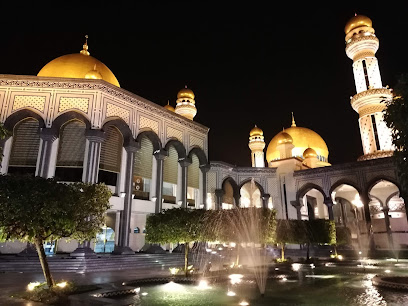
Jame' Asr Hassanil Bolkiah Mosque
Discover the breathtaking beauty of Jame' Asr Hassanil Bolkiah Mosque, Brunei's largest mosque, adorned with golden domes and intricate Islamic art.
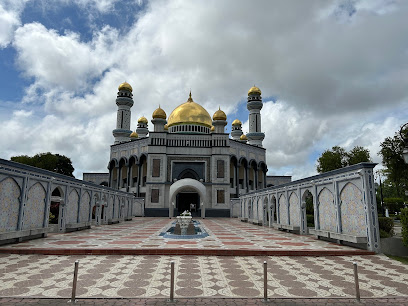
Royal Regalia Museum
Discover Brunei's royal heritage at this museum showcasing the Sultan's life, ceremonial regalia, and treasured gifts.
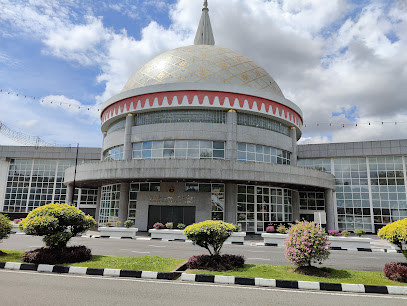
Istana Nurul Iman
Explore the grandeur of Istana Nurul Iman, the majestic residence of the Sultan of Brunei, a stunning blend of tradition and modernity.
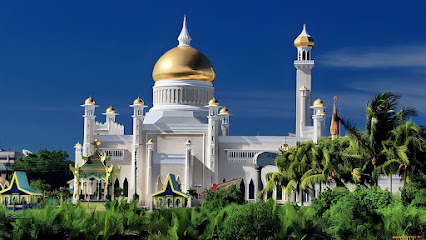
Jerudong Park Playground
Experience endless fun and adventure at Jerudong Park Playground, Brunei’s premier amusement park, perfect for families and thrill-seekers.
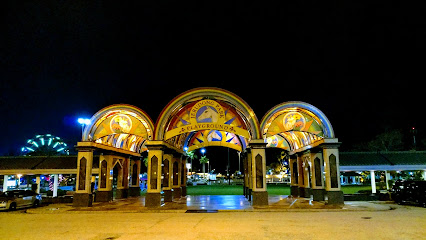
Kianggeh Market
Explore the vibrant Kianggeh Market in Bandar Seri Begawan, where local flavors and crafts come alive in a bustling cultural hub.
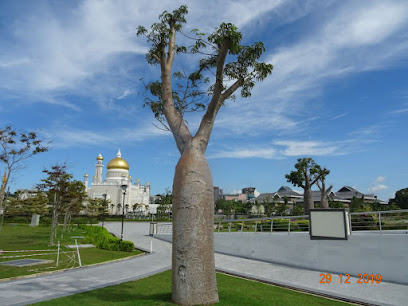
Tasek Lama Recreational Park
Escape to nature in the heart of Brunei's capital: hiking trails, waterfalls, and serene landscapes await at Tasek Lama Recreational Park.
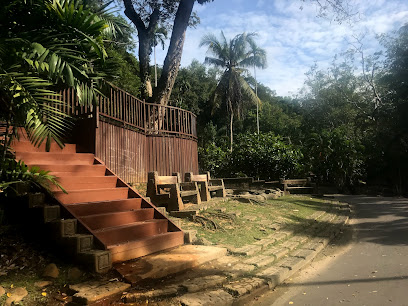
LeGallery Suites
Experience comfort and convenience at LeGallery Suites, your ideal base for exploring the cultural heart of Bandar Seri Begawan.
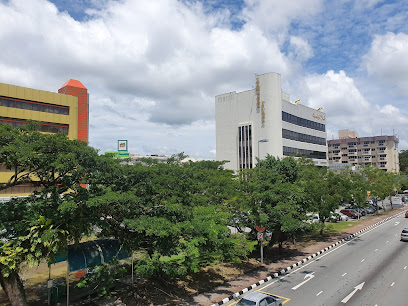
Ash Shaliheen Mosque
Discover Brunei's Ash Shaliheen Mosque: A unique blend of Moroccan and Islamic architecture in a serene setting for prayer and reflection.
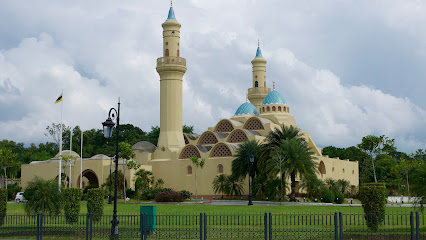
Raja Isteri Pengiran Anak Hajah Saleha Bridge
Discover the Raja Isteri Pengiran Anak Hajah Saleha Bridge in Brunei: a modern marvel offering stunning views and cultural significance.
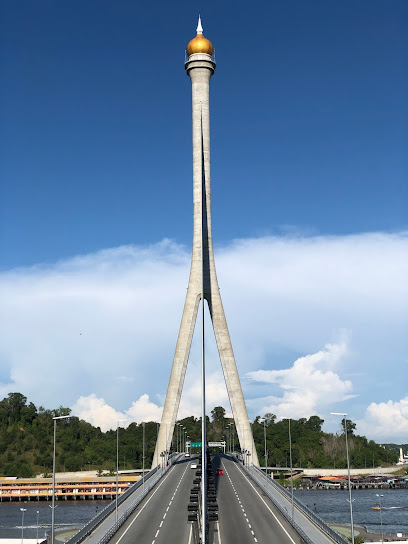
Taman Mahkota Jubli Emas
Discover a serene oasis in Brunei's capital: Taman Mahkota Jubli Emas, where nature, culture, and stunning views converge for an unforgettable experience.
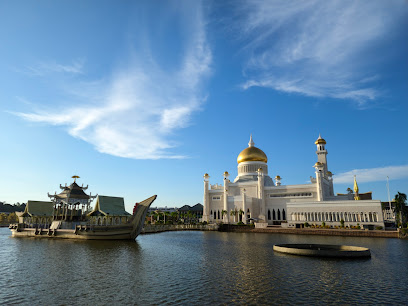
Brunei Waterfront
Experience the beauty and tranquility of Brunei Waterfront, a picturesque destination blending culture, nature, and relaxation in Bandar Seri Begawan.
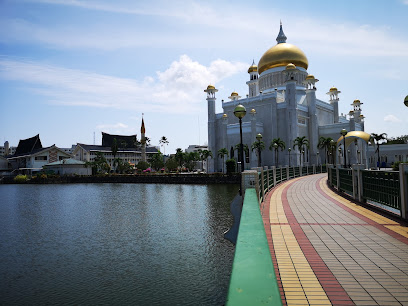
Taman Jubli Perak
Discover the tranquil beauty of Taman Jubli Perak, a lush park in Bandar Seri Begawan, perfect for relaxation and cultural experiences.
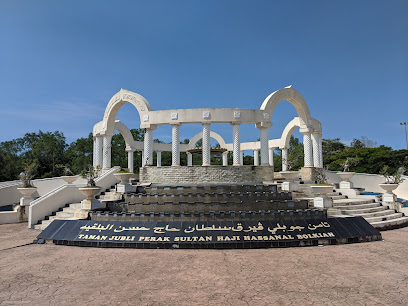
Church of Our Lady of Assumption Catholic Church
Explore the serene beauty and rich heritage of the Church of Our Lady of Assumption in Bandar Seri Begawan, a true gem for culture and reflection.
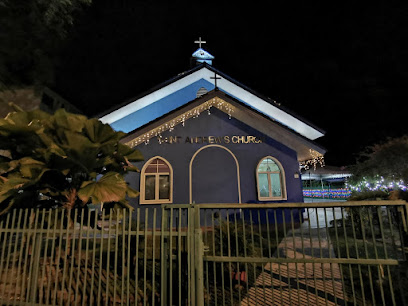
Unmissable attractions to see
Omar Ali Saifuddien Mosque
Discover the golden-domed Omar Ali Saifuddien Mosque in Brunei, a symbol of Islamic grandeur and architectural brilliance on a serene lagoon.

Gadong Night Market
Experience Brunei's vibrant culinary scene at Gadong Night Market, a lively hub offering delicious local food and cultural immersion every evening.
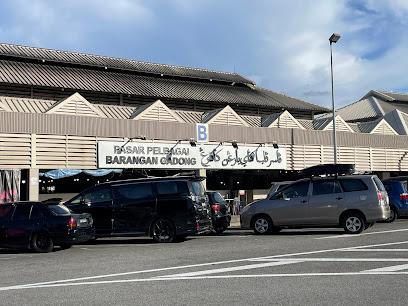
Jame' Asr Hassanil Bolkiah Mosque
Discover Brunei's largest mosque, a dazzling display of Islamic architecture with 29 golden domes and serene gardens.
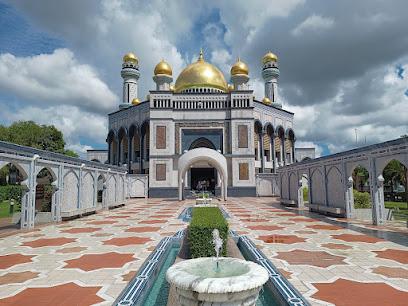
Royal Regalia Museum
Discover Brunei's royal heritage at the Royal Regalia Museum, showcasing the Sultan's treasures and the nation's rich history.
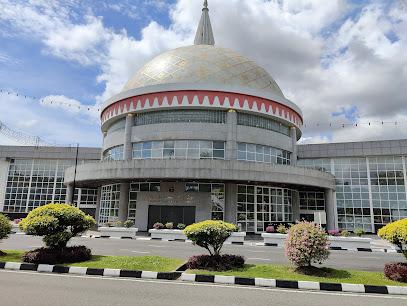
Istana Nurul Iman
Discover Istana Nurul Iman, the world's largest royal residence, blending Islamic and Malay architecture in the heart of Bandar Seri Begawan.
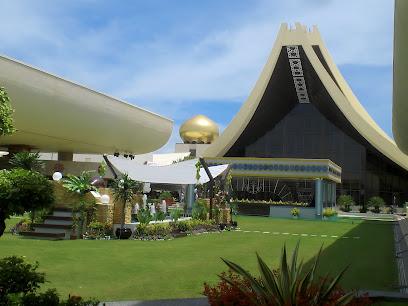
Jerudong Park Playground
Experience thrilling rides and family fun at Jerudong Park Playground, Brunei's iconic amusement park with a rich history and exciting attractions.
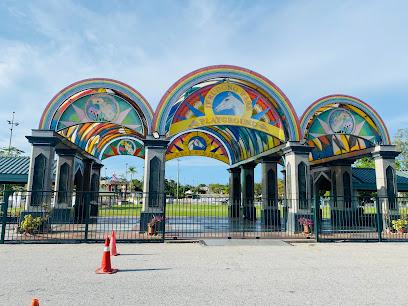
Yayasan Sultan Haji Hassanal Bolkiah
Explore Brunei's culture and modern shopping at Yayasan Sultan Haji Hassanal Bolkiah, a landmark in Bandar Seri Begawan.
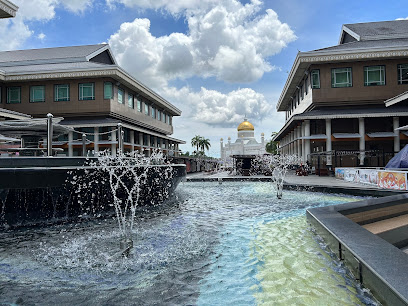
Kianggeh Market
Experience the vibrant culture of Brunei at Kianggeh Market, a bustling hub of local flavors, crafts, and community in Bandar Seri Begawan.
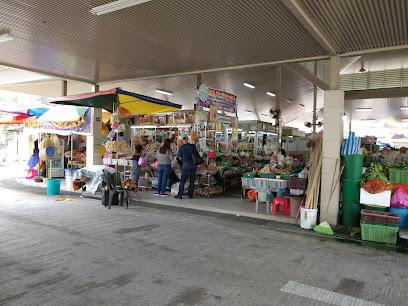
Malay Technology Museum
Explore Brunei's heritage through traditional technologies and lifestyles at the Malay Technology Museum in Kota Batu.
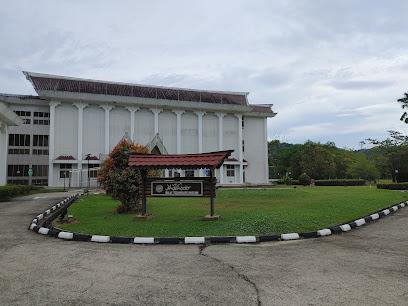
Raja Isteri Pengiran Anak Hajah Saleha Bridge
Discover Brunei's iconic cable-stayed bridge, offering stunning views and a glimpse into the nation's modern architectural achievements.
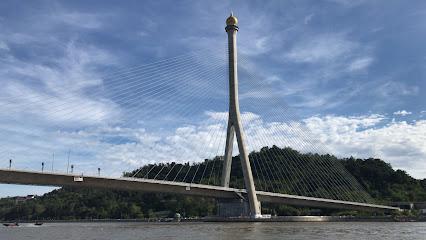
Taman Mahkota Jubli Emas
Experience tranquility at Taman Mahkota Jubli Emas, a riverfront park blending nature and Brunei's rich cultural heritage in Bandar Seri Begawan.
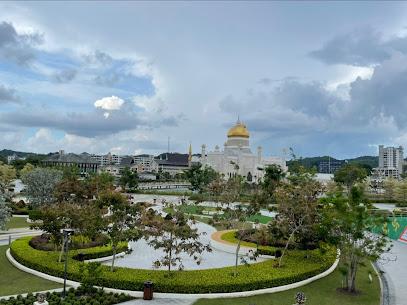
Damuan Recreational Park
Escape to nature in the heart of Brunei's capital; Damuan Recreational Park offers tranquility, recreation, and cultural art in a lush green setting.
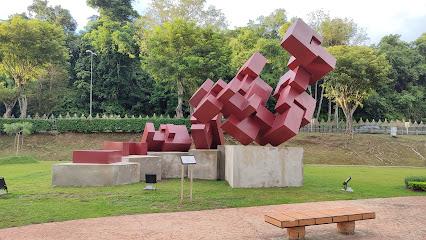
Kampung Meritam's Mud Volcanoes
Discover Sarawak's hidden gem: Kampung Meritam Mud Volcanoes. Experience nature's spa with bubbling mud pools and tranquil landscapes.
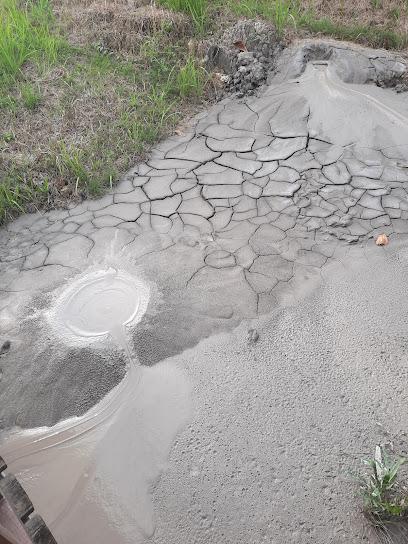
Bukit Patoi Recreational Park
Escape to Bukit Patoi Recreational Park in Temburong for breathtaking views, serene hiking trails, and a tranquil nature retreat.
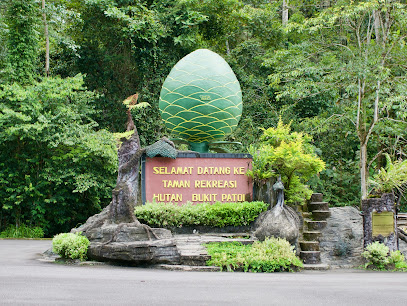
Water Village Gallery
Discover Brunei's Aboriginal art and the rich history of Kampong Ayer at this unique floating gallery. A cultural gem in the 'Venice of the East'.
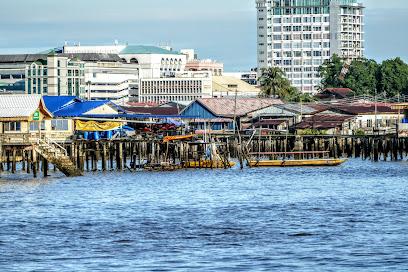
Essential places to dine
Chop Jing Chew
Experience authentic Bruneian flavors at Chop Jing Chew - your go-to restaurant and bakery in Bandar Seri Begawan.
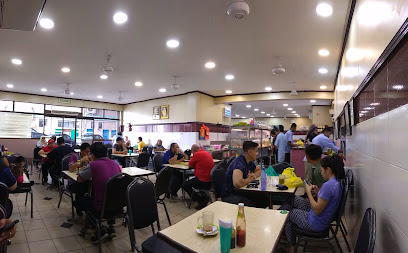
Kaizen Sushi Yayasan
Discover authentic Japanese cuisine at Kaizen Sushi Yayasan in Bandar Seri Begawan – where every dish tells a story.
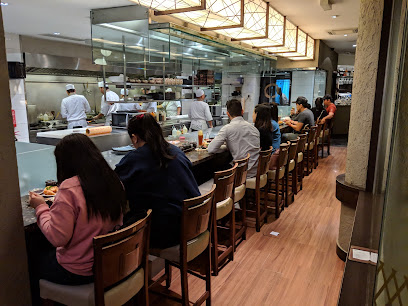
My Town Eating House
Discover authentic Bruneian cuisine at My Town Eating House in Bandar Seri Begawan's Crown Princess Complex.
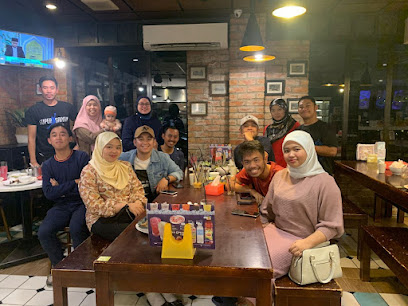
Little Audrey's Café
Experience culinary delight at Little Audrey's Café in Bandar Seri Begawan – where every meal is a moment to savor.
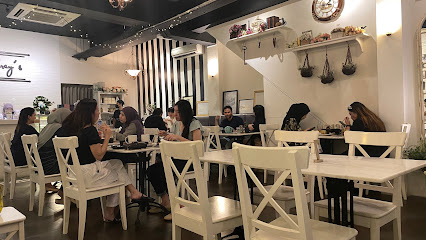
I-Lotus Restaurant
Experience authentic Chinese flavors at I-Lotus Restaurant in Bandar Seri Begawan, where every meal is a celebration of taste and tradition.
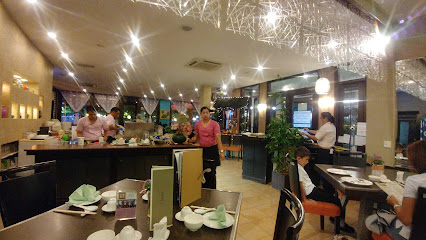
Thien Thien Restaurant Kiulap
Experience authentic Chinese cuisine at Thien Thien Restaurant Kiulap - where flavor meets affordability in Bandar Seri Begawan.
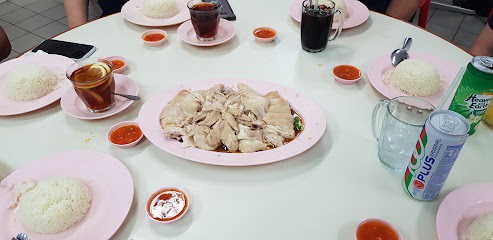
Pondok Seri Wangi Restaurant
Experience authentic Indonesian flavors at Pondok Seri Wangi Restaurant in Bandar Seri Begawan – a culinary gem not to be missed.
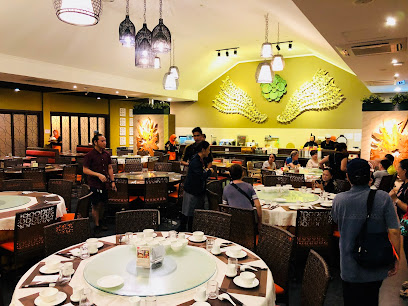
Alter Ego Fusion Cafe
Experience culinary creativity at Alter Ego Fusion Cafe in Bandar Seri Begawan – where traditional flavors meet modern flair.
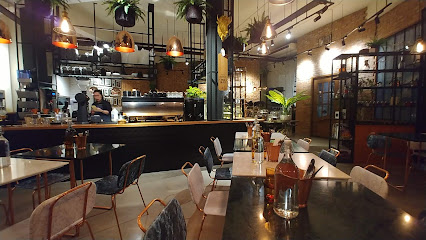
The Kabin Cafe
Experience the best of Bruneian cuisine at The Kabin Cafe with diverse buffet options and interactive steamboat dining.
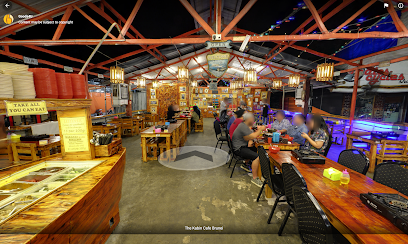
Gwad Basha Arabic Restaurants
Discover authentic Middle Eastern cuisine at Gwad Basha Arabic Restaurants in Bandar Seri Begawan—where tradition meets flavor.
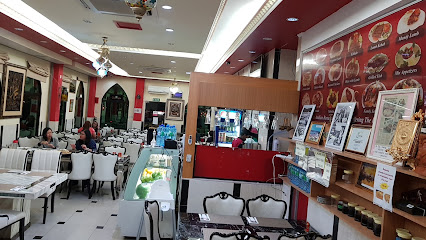
Zorba's Café Sdn Bhd
Experience authentic Greek flavors at Zorba's Café Sdn Bhd in Bandar Seri Begawan - where every meal is a celebration.
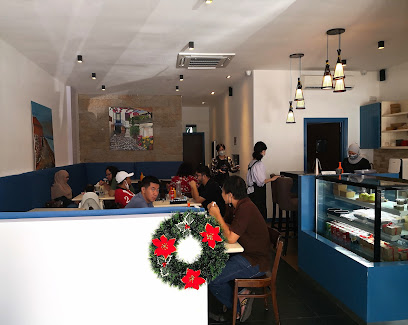
Thiam Hock Restaurant
Experience authentic Chinese flavors at Thiam Hock Restaurant in Bandar Seri Begawan - home of the famous Curry Fish.
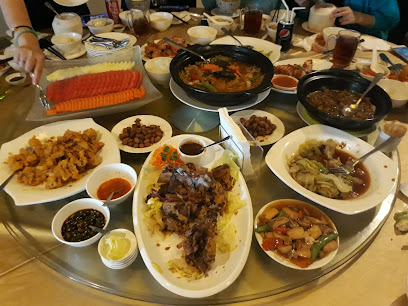
Big Mama's Restaurant
Discover authentic flavors at Big Mama's Restaurant in Bandar Seri Begawan - where local cuisine meets friendly service at affordable prices.
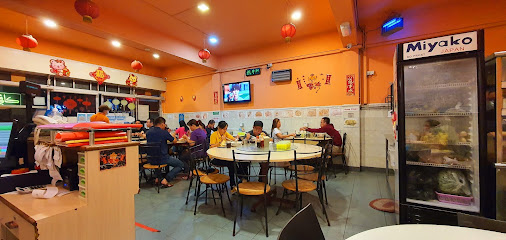
Phongmun Restaurant 豐滿樓大酒家
Discover the flavors of China at Phongmun Restaurant in Bandar Seri Begawan - your go-to spot for authentic dim sum and Cantonese cuisine.
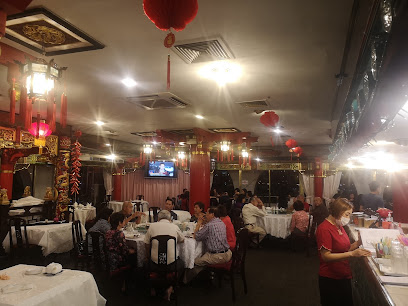
Ricebowl Restaurant & Catering
Experience authentic Bruneian cuisine at Ricebowl Restaurant & Catering – where every meal tells a story of tradition and flavor.
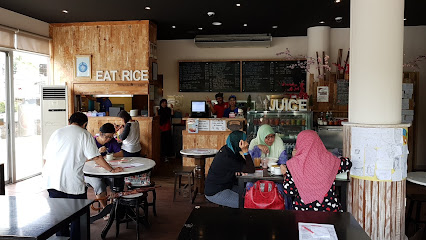
Markets, malls and hidden boutiques
The Mall Gadong
Discover the ultimate shopping and dining experience at The Mall Gadong, where fashion, food, and fun come together in Bandar Seri Begawan.
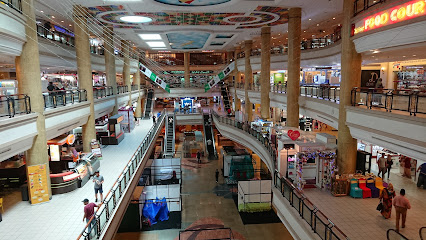
Times Square Shopping Centre
Explore Times Square Shopping Centre in Bandar Seri Begawan for an unforgettable shopping and dining experience amidst Brunei's vibrant culture.

Rimba Point
Experience shopping like never before at Rimba Point, Brunei's premier shopping mall with diverse shops, dining, and entertainment options.
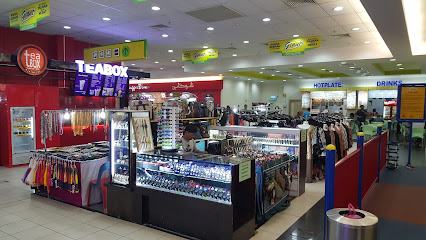
Mabohai Shopping Complex
Discover the vibrant Mabohai Shopping Complex in Bandar Seri Begawan - your ultimate destination for shopping, dining, and entertainment!

The Airport Mall
Experience the blend of culture and modern shopping at The Airport Mall in Bandar Seri Begawan, where every visit is a delightful journey.

Aman Hills Shopping Centre
Discover Aman Hills Shopping Centre, the vibrant shopping mall in Bandar Seri Begawan offering unique shops, delightful dining, and a taste of local culture.
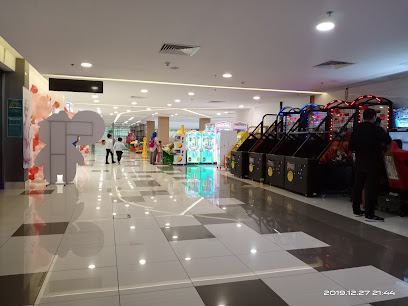
First Emporium & Supermarket (Branch)
Discover the First Emporium & Supermarket – a vibrant shopping hub for Asian household goods and local delicacies in Bandar Seri Begawan.
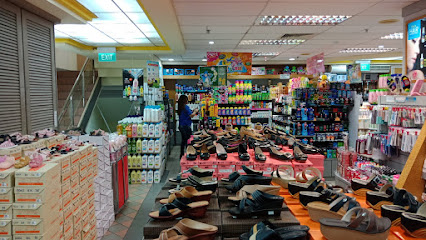
Handpicked Company
Discover unique gifts and local handicrafts at Handpicked Company in Bandar Seri Begawan - a shopping experience that celebrates Brunei's culture.
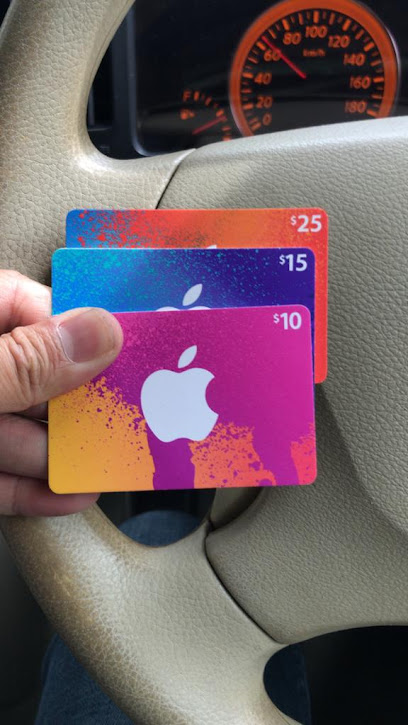
Mid Valley Shopping Centre
Explore Mid Valley Shopping Centre: Your Ultimate Shopping and Dining Destination in Bandar Seri Begawan, Brunei.
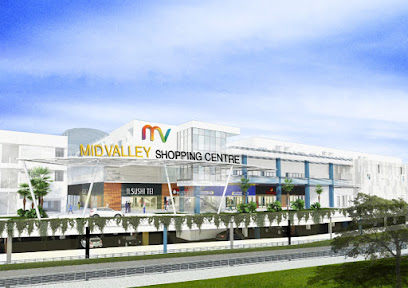
Happy Star Brunei Souvenir Shop
Explore the Happy Star Brunei Souvenir Shop for unique mementos that celebrate Brunei's rich culture and heritage—experience the essence of Brunei.
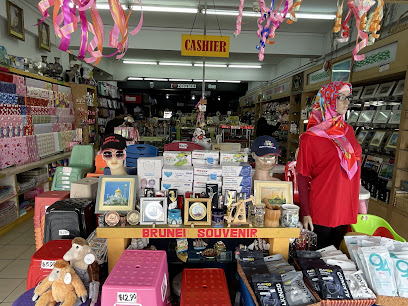
THE ONE
Discover Brunei's vibrant retail scene at The One shopping mall, a blend of shopping and dining in the heart of Bandar Seri Begawan.
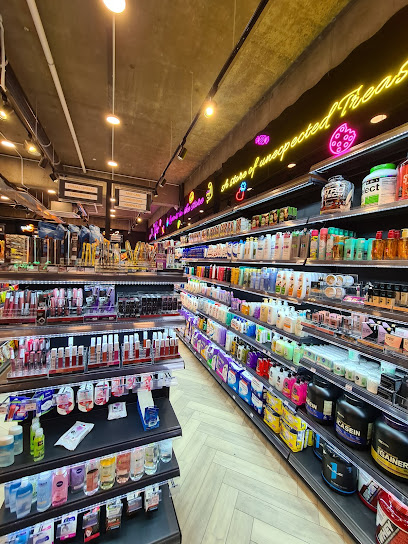
Seri Qlap Mall
Explore Seri Qlap Mall: A Cozy Shopping Haven in Bandar Seri Begawan Offering Unique Retail and Dining Experiences.
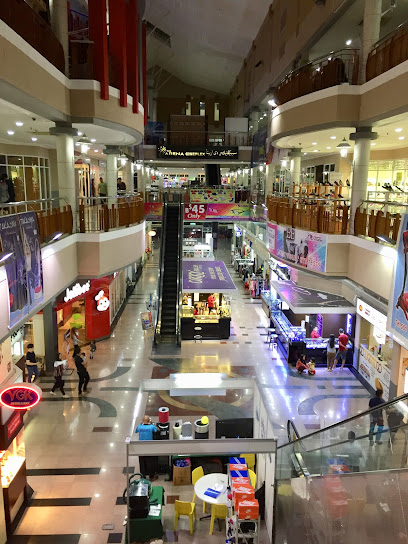
GL Extra Enterprise
Explore the great outdoors with quality gear from GL Extra Enterprise, your go-to outdoor sports store in Bandar Seri Begawan.
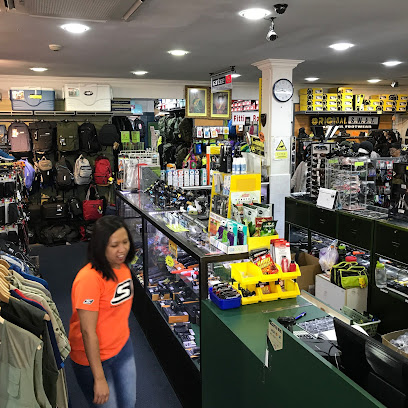
Ten Ten Gadget Shop
Explore the latest gadgets and electronics at Ten Ten Gadget Shop, where tech innovation meets exceptional customer service in Bandar Seri Begawan.
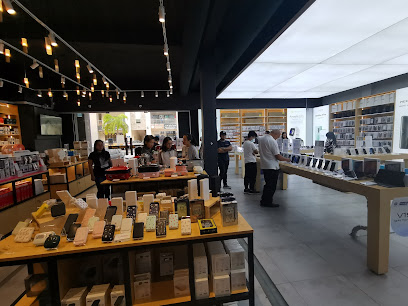
JIHAD SDN BHD
Discover the ultimate shopping experience at JIHAD SDN BHD, where fashion meets Brunei's vibrant culture in the heart of Bandar Seri Begawan.
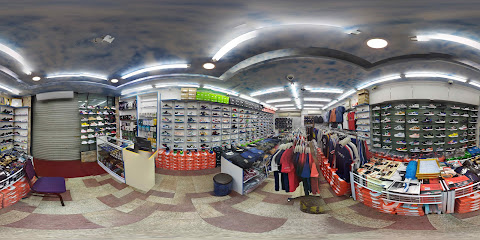
Essential bars & hidden hideouts
Kaizen Sushi Yayasan
Discover the exquisite flavors of Japan at Kaizen Sushi Yayasan, a premier destination for sushi enthusiasts in Bandar Seri Begawan.
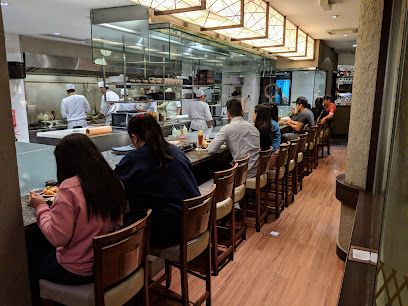
Alter Ego Fusion Cafe
Discover the flavors of Brunei at Alter Ego Fusion Cafe, where culinary creativity meets a vibrant atmosphere in Bandar Seri Begawan.
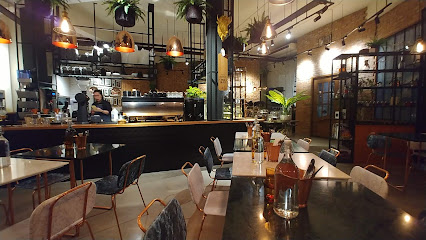
Jazz Bar And Grill
Savor delicious Western cuisine while enjoying live jazz at the Jazz Bar and Grill in Kiulap, a unique culinary experience for every traveler.
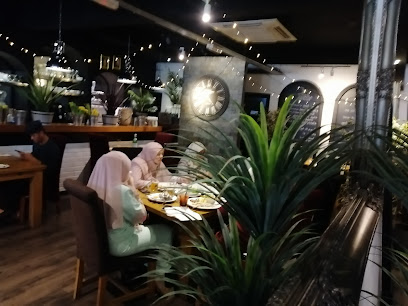
Royal Brunei Business Class Lounge
Experience unparalleled comfort and luxury at the Royal Brunei Business Class Lounge, your ultimate retreat in the airport.
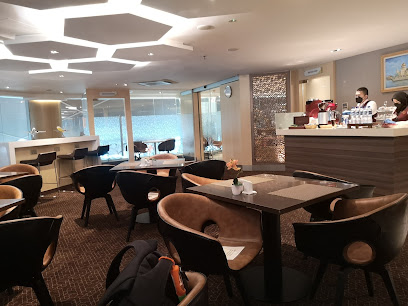
Shabu Shabu Ice Bar Kiulap
Discover a unique blend of traditional shabu shabu and innovative ice bar dining in the heart of Bandar Seri Begawan, a must-visit for food lovers.
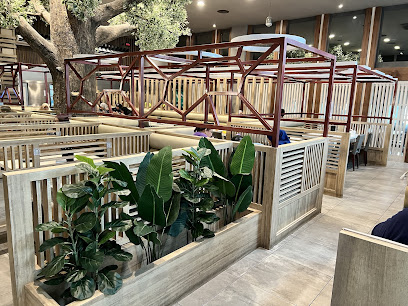
Sorriso Restaurant & Pizzeria
Experience authentic Italian flavors at Sorriso Restaurant & Pizzeria in Bandar Seri Begawan, where delicious cuisine meets a cozy ambiance.
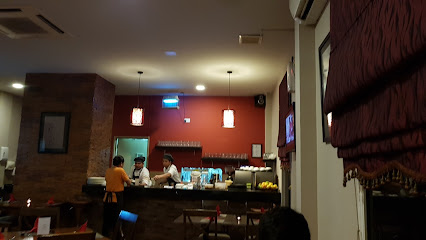
London Cafe & Restaurant
Experience the essence of Western cuisine at London Cafe & Restaurant in Bandar Seri Begawan, perfect for tourists seeking comfort food and a cozy atmosphere.
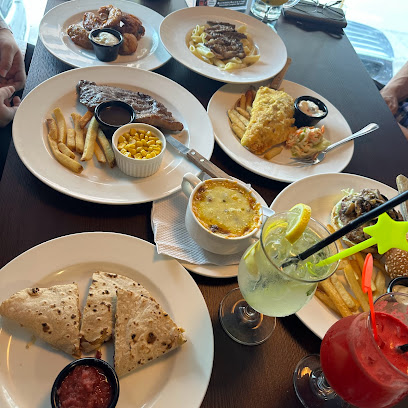
HUNGRY BAR & BISTRO
Experience a delightful blend of local and international flavors at Hungry Bar & Bistro, the perfect dining spot in Bandar Seri Begawan.
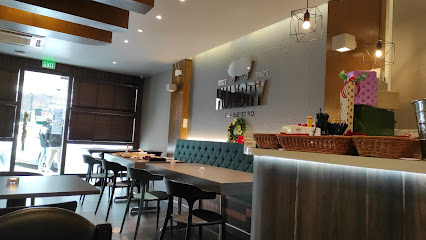
Tasek Brasserie
Experience the flavors of Brunei at Tasek Brasserie, where culinary excellence meets a welcoming atmosphere.
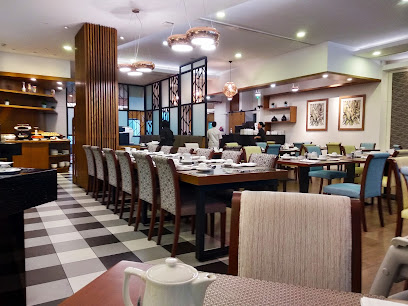
Riwaz (ரிவாஸ்/रिवाज़)
Experience the rich flavors of India at Riwaz, a premier Indian restaurant in Bandar Seri Begawan, offering authentic dishes and a warm atmosphere.
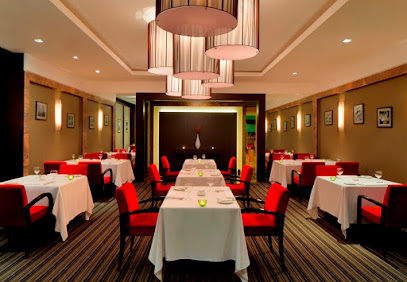
Noodle Haven Bar Brunei
Discover the authentic flavors of Brunei at Noodle Haven Bar, where every noodle dish is a culinary masterpiece waiting to be savored.
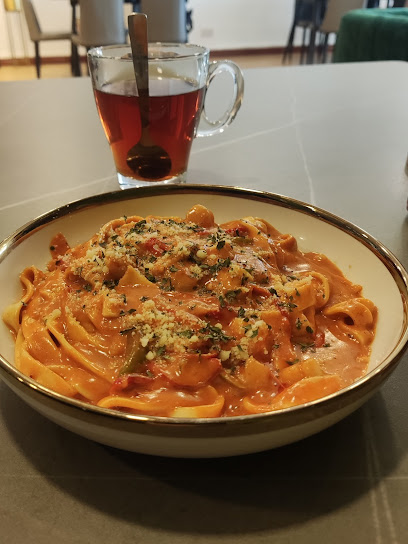
Sky Lounge
Experience the serene ambiance and stunning views at Sky Lounge in Bandar Seri Begawan, where relaxation meets Bruneian hospitality.
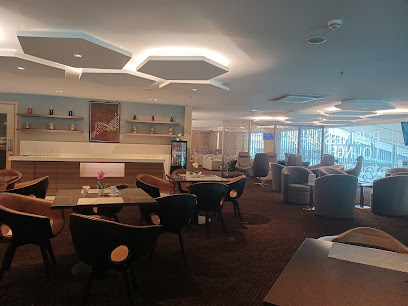
Pro-X Pool House
Discover the vibrant atmosphere of Pro-X Pool House, a premier sports bar in Bandar Seri Begawan for relaxation and entertainment after a day of exploration.
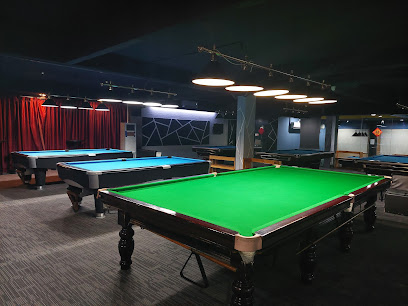
Palate restaurant
Discover the culinary excellence of Palate Restaurant in Bandar Seri Begawan, where local flavors and a welcoming atmosphere come together.
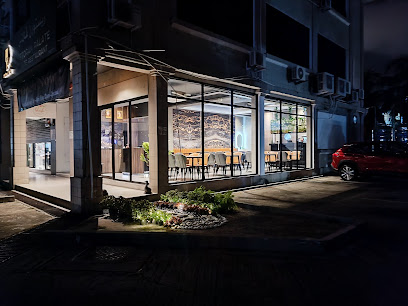
Local Phrases
-
- HelloHalo
[ha-lo] - GoodbyeSelamat tinggal
[suh-la-maht ting-gahl] - YesYa
[yah] - NoTidak
[tee-dahk] - Please/You're welcomeSila
[see-lah] - Thank youTerima kasih
[teh-ree-mah kah-see] - Excuse me/SorryMaaf
[mah-ahf] - How are you?Apa khabar?
[ah-pah kah-bar] - Fine. And you?Baik. Dan awda?
[bah-ee-kuh. dan ow-dah] - Do you speak English?Awda boleh bertutur dalam Bahasa Inggeris?
[ow-dah boh-luh buhr-too-tuhr dah-lahm bah-hah-sah ing-guh-rees] - I don't understandSaya tidak faham
[sah-yah tee-dahk fah-hahm]
- HelloHalo
-
- I'd like to see the menu, pleaseSaya mau melihat menu, sila
[sah-yah mow muh-lee-haht meh-noo, see-lah] - I don't eat meatSaya tidak makan daging
[sah-yah tee-dahk mah-kahn dah-yee-ng] - Cheers!Selamat minum!
[suh-la-maht mee-noom] - I would like to pay, pleaseSaya ingin membayar, sila
[sah-yah een-geen muhm-bah-yahr, see-lah]
- I'd like to see the menu, pleaseSaya mau melihat menu, sila
-
- Help!Tolong!
[toh-lohng] - Go away!Pergi jauh-jauh!
[puhr-gee jah-oo jah-oo] - Call the Police!Panggil polis!
[pahng-geel poh-lees] - Call a doctor!Panggil doktor!
[pahng-geel dohk-tor] - I'm lostSaya tersesat
[sah-yah tuhr-suh-saht] - I'm illSaya sakit
[sah-yah sah-keet]
- Help!Tolong!
-
- I'd like to buy...Saya ingin membeli...
[sah-yah een-geen muhm-beh-lee] - I'm just lookingSaya hanya melihat
[sah-yah huh-nyah muh-lee-haht] - How much is it?Berapa harganya?
[buh-rah-pah hahr-gahn-yah] - That's too expensiveItu terlalu mahal
[ee-too teh-rah-lah mah-hahl] - Can you lower the price?Boleh kurangkan harga?
[boh-luh ku-rahn-gahn hahr-gah]
- I'd like to buy...Saya ingin membeli...
-
- What time is it?Pukul berapa sekarang?
[poo-kool buh-rah-pah suh-kah-rahn] - It's one o'clockPukul satu
[poo-kool sah-too] - Half past (10)Pukul setengah sepuluh
[poo-kool suh-tuh-ngah suh-poo-looh] - MorningPagi
[pah-gee] - AfternoonPetang
[puh-tahng] - EveningMalam
[mah-lahm] - YesterdaySemalam
[suh-mah-lahm] - TodayHari ini
[hah-ree ee-nee] - TomorrowEsok
[eh-sohk] - 1Satu
[sah-too] - 2Dua
[doo-ah] - 3Tiga
[tee-gah] - 4Empat
[uhm-paht] - 5Lima
[lee-mah] - 6Enam
[uh-nahm] - 7Tujuh
[too-joo] - 8Lapan
[lah-pahn] - 9Sembilan
[suhm-bee-lahn] - 10Sepuluh
[suh-poo-looh]
- What time is it?Pukul berapa sekarang?
-
- Where's a/the...?Di mana...
[dee mah-nah] - What's the address?Apa alamatnya?
[ah-pah ah-lah-maht-nyah] - Can you show me (on the map)?Boleh tunjukkan saya (di peta)?
[boh-luh toon-jook-kahn sah-yah (dee peh-tah)] - When's the next (bus)?Bila bas seterusnya?
[bee-lah bahs suh-tuh-roos-nyah] - A ticket (to ....)Sebuah tiket (ke ....)
[suh-bwah tee-keht (keh ....)]
- Where's a/the...?Di mana...
History of Bandar Seri Begawan
-
Bandar Seri Begawan, originally known as Brunei Town, has a rich history that dates back to the early 16th century. The city served as a pivotal trading hub for the Bruneian Empire, which controlled much of Borneo and the surrounding islands. Its strategic location along the Brunei River made it an ideal spot for maritime trade and cultural exchange. The early settlement was characterized by wooden stilt houses along the river, which laid the foundation for the vibrant water village, Kampong Ayer, that exists today.
-
During the 16th century, the Bruneian Empire was at its zenith, with Bandar Seri Begawan as its capital. The Sultanate expanded its influence through maritime prowess and trade relationships with regional powers, including China and the Malay Archipelago. The city became a melting pot of cultures, with influences from Arab traders, Chinese merchants, and indigenous Dayak communities. This era saw the construction of significant religious and cultural landmarks, including mosques and palaces, many of which have been restored or rebuilt over the years.
-
In the late 19th and early 20th centuries, Bandar Seri Begawan came under British protection as part of the broader colonial expansion in Southeast Asia. The British established administrative structures and introduced modern infrastructure, including roads and government buildings. However, the city faced significant challenges during World War II when Japanese forces occupied Brunei from 1941 to 1945. The occupation led to extensive damage, but it also sparked a sense of national identity and resilience among the Bruneian people.
-
After World War II, Bandar Seri Begawan underwent a period of reconstruction under British supervision. The post-war era saw the establishment of key institutions and modernization projects, including the development of healthcare and educational facilities. In 1959, Brunei adopted its first written constitution, and by 1962, the city had a new name: Bandar Seri Begawan, in honor of Sultan Omar Ali Saifuddien III. The city continued to grow and modernize, setting the stage for Brunei's full independence from British rule in 1984.
-
Bandar Seri Begawan today is renowned for its blend of modernity and tradition. One of the most iconic landmarks is the Sultan Omar Ali Saifuddien Mosque, completed in 1958, which showcases exquisite Islamic architecture with its golden domes and marble minarets. Another significant structure is the Jame' Asr Hassanil Bolkiah Mosque, the largest in Brunei, built to commemorate the current Sultan's silver jubilee. These architectural marvels not only serve as places of worship but also as symbols of Brunei's cultural and religious heritage.
-
Kampong Ayer, often referred to as the 'Venice of the East,' is one of the oldest and most unique parts of Bandar Seri Begawan. This water village consists of traditional stilt houses and wooden walkways, offering a glimpse into the city's historical lifestyle. Despite modernization, Kampong Ayer remains a vibrant community, preserving its cultural heritage while integrating contemporary amenities. Visitors can explore the village by boat, visiting local homes, schools, and even museums that celebrate the rich history and traditions of the Bruneian people.
Bandar Seri Begawan Essentials
-
Bandar Seri Begawan, the capital of Brunei, can be accessed via Brunei International Airport (BWN), located about 11 kilometers from the city center. Several international airlines operate flights to and from major cities in Asia, such as Singapore, Kuala Lumpur, and Bangkok. From the airport, you can take a taxi or use the airport shuttle service to reach your accommodation. Additionally, the city is accessible by ferry from Labuan, Malaysia.
-
Transportation within Bandar Seri Begawan is convenient and varied. Taxis are plentiful and metered, though it is advisable to agree on a fare for longer journeys. The city also has an efficient public bus network with routes covering major attractions and neighborhoods. Car rental services are available for those who prefer to drive, but be aware that traffic drives on the left-hand side. Bicycles and scooters can also be rented for exploring the city at a leisurely pace.
-
The official currency of Brunei is the Brunei Dollar (BND), which is interchangeable with the Singapore Dollar (SGD) at par value. Credit cards are widely accepted in hotels, restaurants, and larger shops, but it is advisable to carry some cash for smaller purchases and in more remote areas. ATMs are readily available throughout the city, and currency exchange services can be found at the airport and major banks.
-
Bandar Seri Begawan is generally considered a very safe city for tourists. Crime rates are low, and violent crime is rare. However, it is always wise to take standard precautions, such as avoiding poorly lit areas at night and keeping an eye on personal belongings in crowded places. There are no specific neighborhoods with high crime rates targeting tourists, but maintaining vigilance is always recommended.
-
In case of emergency, dial 993 for police assistance, 991 for an ambulance, and 995 for fire services. The Raja Isteri Pengiran Anak Saleha (RIPAS) Hospital is the main hospital in Bandar Seri Begawan, offering comprehensive medical services. Pharmacies are also widely available for minor health issues. It is advisable to have travel insurance that includes medical coverage.
-
Fashion: Do dress modestly, especially when visiting religious sites. Avoid wearing revealing clothing. Religion: Do respect local customs and Islamic traditions. Dress appropriately and refrain from public displays of affection. Public Transport: Do be patient and courteous. Don’t eat or drink on public transport. Greetings: Do greet people with a smile and a slight nod. Handshakes are common but use your right hand. Eating & Drinking: Do try local delicacies and accept food offerings graciously. Don’t refuse hospitality, as it is considered impolite.
-
To experience Bandar Seri Begawan like a local, visit the Tamu Kianggeh Market early in the morning to enjoy fresh produce and local delicacies. Spend time at the Kampong Ayer (Water Village) for a glimpse into traditional Bruneian life. Take a leisurely boat ride along the Brunei River for stunning views of the city skyline and mangrove forests. Engage with locals, as they are generally friendly and willing to share insights about their culture and history.
Trending Landmark in Bandar Seri Begawan
-
Omar Ali Saifuddien Mosque
-
Gadong Night Market
-
Jame' Asr Hassanil Bolkiah Mosque
-
Royal Regalia Museum
-
Istana Nurul Iman
-
Jerudong Park Playground
-
Kianggeh Market
-
Tasek Lama Recreational Park
-
LeGallery Suites
-
Ash Shaliheen Mosque
-
Raja Isteri Pengiran Anak Hajah Saleha Bridge
-
Taman Mahkota Jubli Emas
-
Brunei Waterfront
-
Taman Jubli Perak
-
Church of Our Lady of Assumption Catholic Church
Nearby Cities to Bandar Seri Begawan
-
Things To Do in Jerudong
-
Things To Do in Muara
-
Things To Do in Bangar
-
Things To Do in Tutong
-
Things To Do in Seria
-
Things To Do in Kuala Belait
-
Things To Do in Miri
-
Things To Do in Kota Kinabalu
-
Things To Do in Sandakan
-
Things To Do in Kuching
-
Things To Do in Palawan
-
Things To Do in Puerto Princesa
-
Things To Do in Balikpapan
-
Things To Do in Zamboanga City
-
Things To Do in Mui Ne














